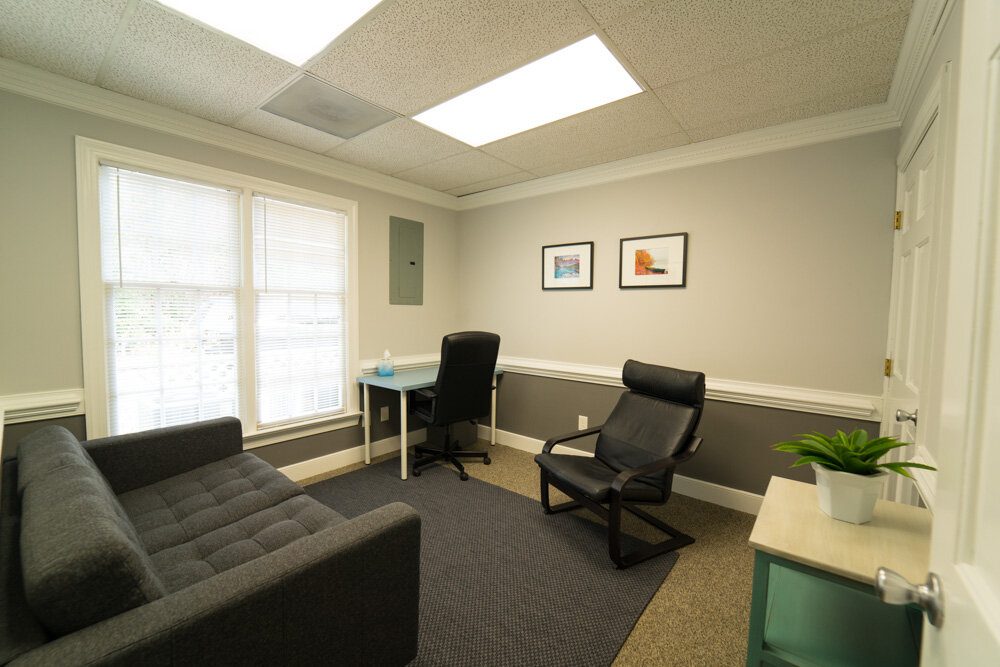The field of mental health has undergone a significant transformation with the advent of technology, providing individuals with new avenues to seek support and counseling. Online counseling, also known as teletherapy or e-counseling, has gained popularity as a convenient and accessible alternative to traditional, in-person therapy sessions.
As more people turn to digital platforms for various aspects of their lives, the question arises: Are online counselors as effective as in-person sessions? In this exploration, we will delve into the benefits and challenges of online counseling, comparing its efficacy to traditional face-to-face interactions.

The Rise of Online Counseling
The digital age has revolutionized how we communicate, work, and even access mental health services. Online counseling has emerged as a response to the evolving needs and preferences of individuals seeking therapy. This mode of counseling involves communication between clients and therapists through video calls, phone calls, chat, or a combination of these methods.
One of the primary advantages of online counseling is its accessibility. Geographical barriers are virtually eliminated, allowing individuals from remote areas or those with limited mobility to connect with qualified mental health professionals. The convenience of scheduling sessions from the comfort of one’s home has also contributed to the growing popularity of online counseling.
Breaking Down the Effectiveness of Online Counseling
1. Accessibility And Convenience
Online counseling offers unparalleled accessibility, breaking down the barriers that might prevent individuals from seeking help. This convenience is especially crucial for those with busy schedules, mobility issues, or living in rural areas where access to mental health services may be limited. The ability to connect with a counselor without the need for travel can lead to increased engagement and a more consistent therapeutic experience.
2. Anonymity And Reduced Stigma
For some individuals, the perceived stigma associated with seeking mental health support can be a significant barrier. Online counseling provides a level of anonymity that can encourage people to reach out for help without fear of judgment. The comfort of being in one’s familiar environment during sessions can contribute to a more open and honest dialogue between the client and the counselor.
3. Cost-Effectiveness
Traditional therapy can be expensive, and financial constraints often deter individuals from seeking the help they need. Online counseling platforms may offer more affordable options, making therapy accessible to a broader demographic. Additionally, the elimination of travel costs can further contribute to the cost-effectiveness of online counseling.
4. Flexibility In Communication
Online counseling allows for flexibility in communication methods. Whether through video calls, phone calls, or messaging, clients can choose the mode that best suits their comfort level and preferences. This flexibility can enhance the therapeutic relationship, as individuals may feel more at ease expressing themselves through their preferred means of communication.
5. Challenges And Limitations
While online counseling presents numerous advantages, it is not without its challenges. Technical issues, such as poor internet connectivity or platform glitches, can disrupt sessions and hinder the therapeutic process. The absence of physical presence may also limit the therapist’s ability to pick up on non-verbal cues, potentially impacting the depth of understanding in certain situations.
6. The Importance Of Non-Verbal Cues
In traditional, face-to-face therapy, non-verbal cues play a crucial role in communication. Facial expressions, body language, and subtle nuances can provide valuable insights into a client’s emotional state. Online counseling, relying primarily on visual and auditory cues, may not capture these subtleties as effectively. Therapists must navigate this limitation to ensure a comprehensive understanding of their clients’ experiences.

Bridging the Gap: Integrating Technology and Personal Connection
The effectiveness of counseling, whether online or in-person, ultimately hinges on the strength of the therapeutic alliance between the client and the counselor. Building rapport and trust is foundational to successful counseling outcomes. While online platforms may present challenges in reading non-verbal cues, skilled therapists can adapt their approaches to foster a deep connection with their clients.
- The Role of Therapist Competence
The competence of the therapist is paramount in determining the success of online counseling. Professionals trained in online therapy techniques and well-versed in leveraging digital communication tools can effectively navigate the unique challenges posed by virtual sessions. Therapists must continually update their skills to stay attuned to the evolving landscape of online counseling.
- Tailoring Approaches to Individual Needs
Recognizing that different individuals have varied preferences and comfort levels with technology is essential. A flexible approach that allows clients to choose the communication method that aligns with their preferences fosters a more inclusive and client-centered therapeutic experience.
- Incorporating Technological Advancements
As technology continues to advance, the landscape of online counseling evolves. Integrating innovative tools, such as virtual reality therapy or AI-assisted interventions, holds the potential to enhance the therapeutic process. However, careful consideration must be given to maintaining the human touch and preserving the authenticity of the therapeutic relationship.
Comparative Effectiveness: Online vs. In-Person Counseling
Efficacy Of Therapeutic Relationship
Central to the effectiveness of counseling is the therapeutic relationship between the client and therapist. Research suggests that the quality of this relationship is a strong predictor of positive outcomes. While online counseling may face challenges in capturing certain non-verbal cues, studies indicate that the therapeutic alliance can still be established and maintained effectively through virtual means.
Treatment Outcomes And Client Satisfaction
Multiple studies have explored the comparative effectiveness of online and in-person counseling in treating various mental health issues. Overall, the evidence suggests that online counseling can yield comparable outcomes to traditional methods. Client satisfaction rates are often high, highlighting the acceptance and effectiveness of the virtual counseling model.
Suitability For Different Individuals
The choice between online and in-person counseling may depend on individual preferences, needs, and the nature of the mental health concern. Some individuals may thrive in the convenience and flexibility offered by online sessions, while others may prefer the in-depth, in-person connection. Recognizing and respecting these differences is crucial in ensuring that individuals receive the most suitable form of mental health support for their unique circumstances.
Conclusion
The effectiveness of counseling, irrespective of the medium, rests on the competence of the therapist, the strength of the therapeutic alliance, and the ability to adapt to individual needs. As technology continues to shape the landscape of mental health services, finding a balance between leveraging digital advancements and preserving the core principles of therapy is essential.
Ultimately, the question of whether online counselors are as effective as in-person sessions cannot be definitively answered with a one-size-fits-all approach. The key lies in recognizing the diverse needs of individuals and continually striving to enhance the quality and accessibility of mental health support in all its forms.


